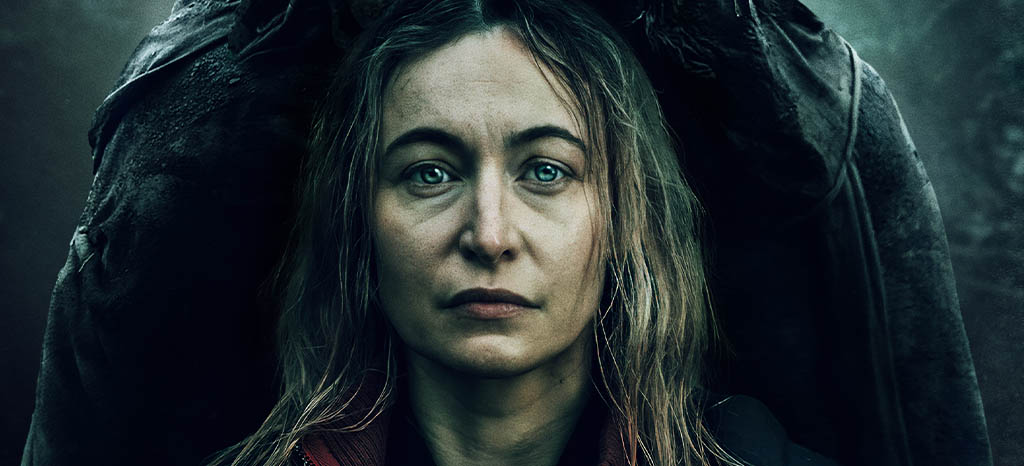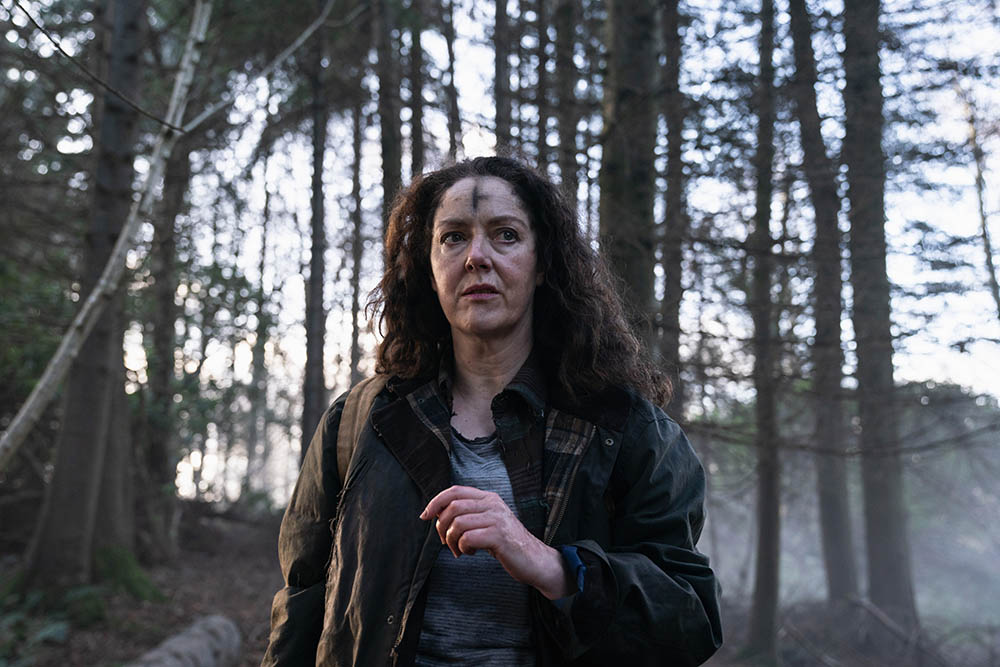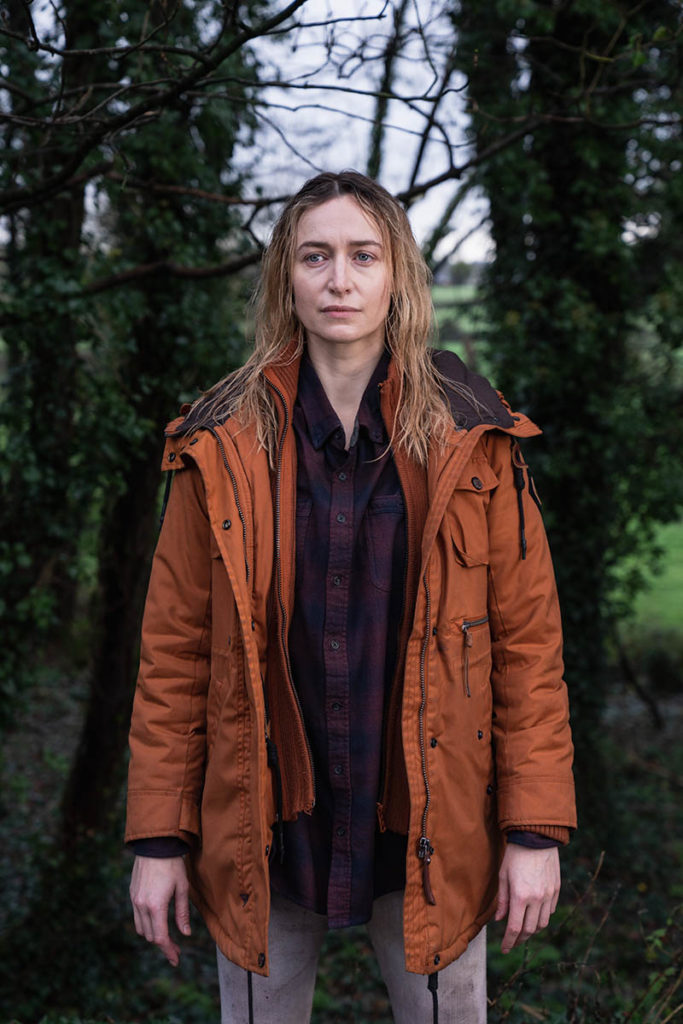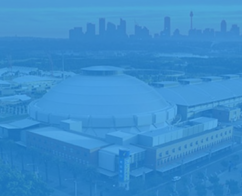
No Guest Found in this category
“I watched a lot of horrors, a lot of sci-fi when I was growing up. But in particular, for modern films, I really did look to Hereditary, Midsommar, and The Witch and wanted the film to be completely grounded,” Lynne Davison begins, explaining the inspiration behind her first directed feature film, Mandrake.
“I think the horror genre is a fantastic tool to explore these social issues and manifest them in a darker way and explore them through monsters.”
A Northern Irish horror film written by Matt Harvey, Mandrake follows Cathy Madden (Deirdre Mullins), a probation officer tasked with rehabilitating the notorious killer “Bloody” Mary Laidlaw (Derbhle Crotty) back into society after being jailed for 20 years. Cathy believes that every client she is assigned to deserves a chance at redemption, but her beliefs are tested when two children disappear near Mary’s farm. The whole community have their pitchforks pointed at Laidlaw.

Derbhle Crotty in ‘Mandrake’
“It’s not a villain twisting their moustache. It’s more complicated. They have their reasons and their moral code as to what they’re doing,” Davison tells of the complexity surrounding the villains in Mandrake.
The first half of Mandrake feels like a BBC crime drama with small inserts of horror folklore regarding Mary. It’s only when the two children go missing that the film suddenly dives entirely into the horror-folklore of mandrakes with social commentary.
“I would always kind of rebel against this prescribed notion of what motherhood is,” Davison says. “The message is that motherhood is something you define for yourself, and it’s not a fairy tale. It can be incredibly difficult.”
Mullins (Shadow and Bones) and Crotty, a well-renowned Irish actor in theatre, play these fleshed-out female characters to keep the audiences engaged throughout the movie. Due to production time restrictions, Davison recalls the many discussions with Mullins and Crotty during prep to understand their character’s motives.

Deirdre Mullins in ‘Mandrake’
“We were able to discuss just who they were to us, the complexities of each character. I wanted to have a balance of what we maybe would perceive as good and evil. But the wonderful thing is if you cast brilliant people, you don’t really have to direct them very much. It was a joy to watch them work and to see how they interpreted what I had said to them.
“Having those conversations where you flesh out the characters and know what you want to present and keeping it organic and keeping it friendly and giving them an opportunity to do what they do best is the way.”
Davison’s past experiences include many short films as a writer and director. These experiences helped her not feel daunted when directing her first feature film.
“I have been making my short films since I was 15, always with the goal of making a feature film. I worked on quite a lot of big stuff at the beginning of my career, so I was very comfortable on set. When it finally happened, it was just where I was supposed to be, what I was supposed to be doing. A dream come true.”
The new journey may just be beginning for Davison, but the road to it wasn’t always easy.
“Well, the first thing is don’t give up. It’s incredibly hard. And you will face the obstacles. And they come in all different shapes and forms,” she advises.
“I present really young, so I find that people don’t really initially listen to what I’m saying. And that’s what you have to kind of figure out for yourself what way to work that problem,” she remarks, advising filmmakers to find their community and mentioning her time as a mentee for Women in Film and Television UK helped with her networking and meeting other female filmmakers.
“We’re all on a WhatsApp group together, and we can share what we are going through. But, you know, we’re not an anomaly. We’re here. We’re making things. We were making things since the dawn of cinema.”
‘Mandrake’ is streaming now via Shudder









